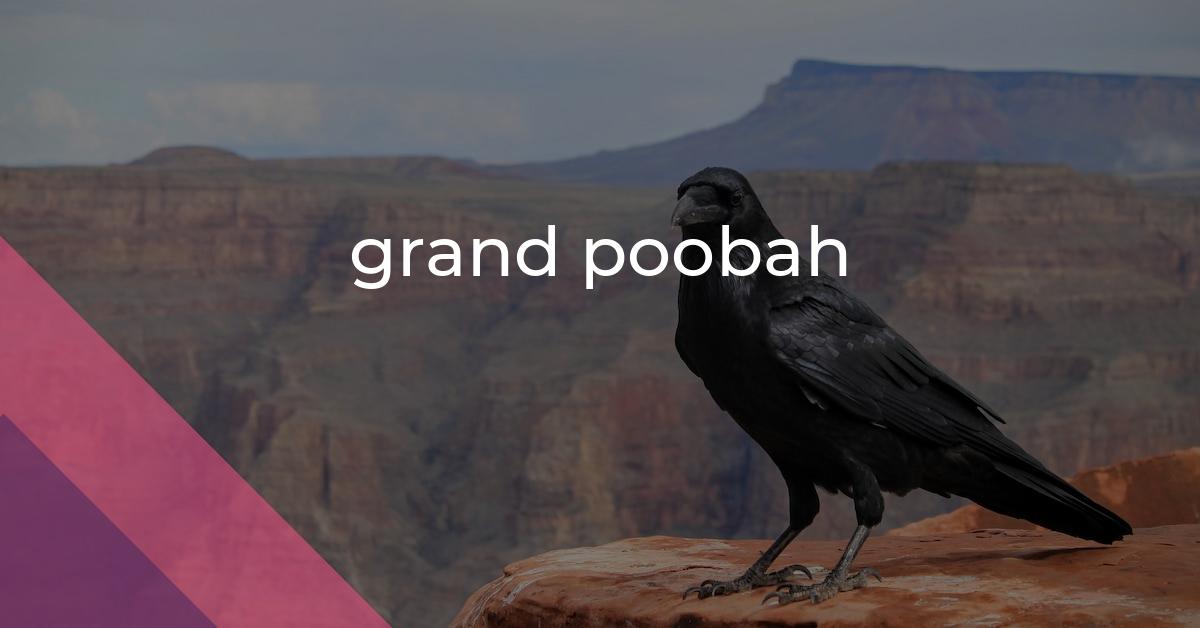grand poobah: Idiom Meaning and Origin
What does ‘grand poobah’ mean?
The idiom "grand poobah" refers to a person who holds a high rank or position, often used humorously or sarcastically. This term originates from the character of "The Grand Poobah" in the opera "The Mikado" by Gilbert and Sullivan.

Idiom Explorer
The idiom "top cat" is used to describe someone who is the most important or influential person in a group or organization.
The idiom "grass tops" refers to the highest level or upper echelons of a particular group or organization, typically consisting of influential or powerful individuals. It symbolizes the idea of reaching the top or pinnacle of success within a specific field or domain.
The idiom "friends in high places" means to have influential or powerful connections, typically in positions of authority or privilege. It suggests that having such connections can help one achieve favorable outcomes or access certain advantages.
The idiom "everybody who is anybody" means that only the most important or influential people are included or recognized in a particular group or situation.
The idiom "come to papa" is an informal expression that is used to indicate someone's desire for possession or control over something. It is often used playfully or affectionately.
The idiom "cock of the roost" refers to someone who is in a dominant or influential position. It suggests being in control or having authority over others.
An idiom meaning a man in a situation of power or control in a predominantly female environment, often causing disruption or imbalance.
The idiom "bottom bitch" refers to a person who holds a position of power and authority within a group or organization, often with a strong and influential presence. This individual typically serves as a trusted and respected second-in-command, providing valuable support and guidance to the leader or boss.
The idiom "booby prize" refers to a sarcastic award or recognition given to someone who has come last or performed poorly in a competition or event. It implies receiving a worthless or undesired prize, highlighting the person's lack of success or disappointment.
The Enigmatic Grand Poobah
The idiom "grand poobah" is a colloquial expression that originated in the United States. It is typically used to refer to a person who holds a high-ranking position or has great authority within a particular organization or group. The term is often employed in a tongue-in-cheek manner, suggesting a sense of self-importance or pompousness.
The precise etymology of "grand poobah" remains elusive, but it is believed to have emerged in the early 20th century. This idiom is thought to have its roots in the fraternal organization called the Ancient Arabic Order of the Nobles of the Mystic Shrine, better known as the Shriners. Within the Shriners, there exists a title known as the "Potentate," who is the presiding officer of a Shrine Temple. It is possible that this hierarchical structure within the Shriners influenced the development of the term "grand poobah" as a way to sarcastically refer to someone in a position of authority.
Over time, "grand poobah" extended its usage beyond the realm of Shriner's organization and became a popular idiom in American English. The idiom appears in various contexts, from politics and business to everyday conversations. It is often employed humorously to poke fun at individuals who exhibit an exaggerated sense of power or self-importance. In other words, when someone refers to someone else as the "grand poobah," they are playfully implying that the person sees themselves as the "big cheese," the "big kahuna," or the "top cat."
Given its informal nature, "grand poobah" is predominantly used in spoken language rather than in formal written texts. However, its usage in informal writing is not unheard of, particularly in informal publications, blogs, and social media platforms.
The popularity of the idiom "grand poobah" highlights its cultural significance within American English. It serves as a linguistic device to challenge and satirize authority, allowing individuals to convey subtle criticism or playful mockery. In essence, when someone refers to someone else as the "grand poobah," they are essentially calling them the "big head" or the "big tamale." It's a way to mock their inflated self-importance in a lighthearted and humorous manner.
The idiom "grand poobah" stands as a testament to the ever-evolving nature of language and the peculiar ways in which idiomatic expressions emerge. It embodies the richness and complexity of idioms, which often transcend literal meanings and rely heavily on shared cultural references and social contexts.
Example usage
Examples of how the idiom "grand poobah" can be used in a sentence:
- "Bob acts like he's the grand poobah of the office, always bossing everyone around."
- "The committee's grand poobah made the final decision on which projects to fund."
- "As the head of the organization, she was the grand poobah of all its operations."
More "Leadership" idioms



